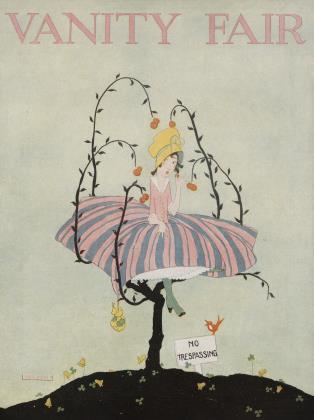Sign In to Your Account
Subscribers have complete access to the archive.
Sign In Not a Subscriber?Join NowAMERICANS AND SIR GILBERT MURRAY
FREDERICK JAMES GREGG
THE visit of Sir Gilbert Murray to New York, has been the literary event of the year. The Regius Professor of Greek at Oxford succeeded in throwing the air of Athens—the Athens of Pericles and Madame Aspasia—over the summer school of Dr. Butler's select establishment on University Heights. Outsiders who had long outgrown any desire for more education than what they had begun to forget when they left college, willingly paid their money to sit at the feet of the man who is able to make the ancient poetry and thought of Hellas seem as modern as the Great War, or as imminent as the day after tomorrow.
PUBLISHERS were anxious to meet the grave scholar who had turned, through his verse translations, the plays of Euripides, and the "Oedipus" of Sophocles into best sellers on both sides of the Atlantic, and had made an exposition of the Stoic philosophy that is as entertaining as a novel. Even that celebrated person, "the tired business man," was interested. As for the ladies, they were delighted. Hundreds of them have. announced their intention to "take up Greek" and shame those brothers of theirs who have decided that the Greek classics "used to be all right, but in our time, etc., etc."
The only thing approaching the excitement at Columbia was observable when M. Henri Bergson packed a hall in London, time and again, while he explained to the choicest beauties of British society, the mysteries of his Philosophy of Change.
Sir Gilbert was a Liberal of the old kind, but the war has turned him into an Imperialist of the same sort as General Botha of South America. He was a bigoted free-trader, but the war has taught him that a kind of protection may mean the self-defence of nations. He was against all sorts of belligerency until he looked into the official reports—original docu-
ments—on who started the trouble. When he was convinced, he took off his doctor's gown and put on the uniform of the Oxford University Officers Training Corps. From that point on he was ready, unlike Ins relative, Bertrand Russell of Cambridge—to stand for conscription, if Kitchener needed it to turn what the Kaiser described as "French's contemptible little army" into Haig's army, which is neither "contemptible" nor "little."
FOR real Americans it ought to be a matter of interest that the two men who have done more than any others to continue the work of our own American Moncure Conway, in the direction of promoting liberty at the British Universities, are Sir Gilbert Murray, born in Australia, and Mr. Bury, late of Dublin, now Regius Professor of History at Cambridge University. It was in a series of modern books, edited by Sir Gilbert, that Bury's "History of Freedom of Thought" was published a few years ago, a volume that—a generation ago—never could have sprouted out of such soil. Murray and Bury have created the new Oxford and the new Cambridge. Under Sir Gilbert his University has ceased to be the home of beautiful lost causes—the cause of the Stuarts and the cause of the Oxford movement—to take only two examples. He is on the side of the causes "that have yet to be won." Unlike the German professors—in explaining his attitude towards the world conflict—he has not had to explain away any departure from the essential convictions of a brilliant and honorable lifetime.
 View Full Issue
View Full Issue












Subscribers have complete access to the archive.
Sign In Not a Subscriber?Join Now